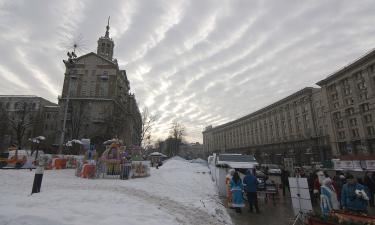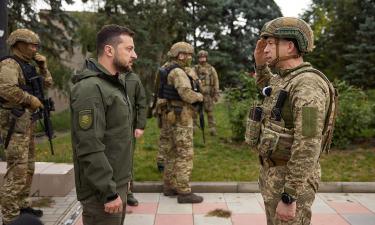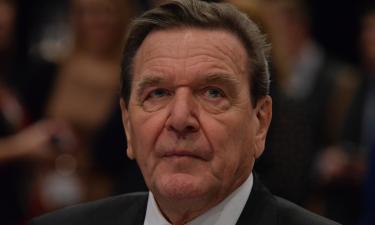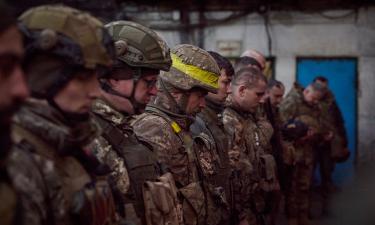Argentina: Kirchner Takes Presidency, Vows Latin American Integration
Twelve Latin American heads of State, including Fidel Castro, Lula and Chavez, attended the swearing-in ceremony of the new Argentine President
Nestor Kirchner took office on Sunday and renews the hopes of a strained society after its worst-ever financial crisis and the political turmoil of the last two years. As in the old days, Buenos Aires received with enthusiasm this center-left Patagonian leader who promised to take Argentina out of a critical situation that combines five years of recession, a $141 billion debt default and deep currency devaluation.
Kirchner, another member of the hegemonic Peronist party, said during the election campaign that he would defend domestic jobs and industries after more than one decade of pro-market policies. His neo-Keynesian economic program is focused on a more active role of the public sector to fight unemployment and revive Latin America's third-largest economy.
The day began early in the morning for Kirchner and caretaker President Eduardo Duhalde. At nine, Duhalde headed the traditional hot chocolate of May 25, Argentina's national day and the longest presidential tradition. Then, Duhalde greeted foreign delegations in the Congress Palace who were waiting for Kirchner. There, Duhalde met twelve Latin American presidents, including Cuba's Castro, who visited Argentina for the third time since the 1959 Revolution, Venezuela's Chavez, Brazil's Lula Da Silva, Chile's Ricardo Lagos, and the Prince of Asturias, first in the line of succession after his father Juan Carlos, King of Spain.
Then, in a brief ceremony, Duhalde presented Kirchner with the presidential symbols. The Deputy Chamber was packed with Argentine politicians, international leaders and over 300 journalists. Kirchner spoke for the first time as President. In the statement, Kirchner stressed his commitment to the political integration of Latin America through the strengthening of Mercosur.
"Our priority in foreign policy is the construction of political stability in Latin America on the basis of democracy and social justice", said Kirchner. "We stand for multilateral relations on international affairs, as we do not believe in automatic alignments", the new President of Argentina stressed in a clear reference to the pro-US vision of his predecessors in office.
Then, Kirchner recollected his background as a political activist during the military dictatorship, in which 30,000 Argentine citizens were assassinated for political reasons. This part of the speech was not welcomed by the chiefs of the Armed Forces responsible for the illegal repression of the seventies. Kirchner also attacked US-backed free market reforms and promised a multi-billion-dollar public works program to stimulate the economy.
As soon as he finished his inauguration speech, Kirchner went to the Palace of Government to formalize the designation of his cabinet. 35,000 supporters followed him all along the ten blocks that separate both buildings. After the ceremony, Kirchner greeted the crowd from the historical balcony once used by Peron and his wife Evita for their addresses to the population.
Latin American integration and the end of neoliberalism
Kirchner's commitment to the political and economic integration of Latin America was enthusiastically welcomed by his counterparts. Chavez, Castro and Lagos celebrated Kirchner's position on the critical foreign debt problem. "We are not going to sacrifice our people to pay the foreign debt", said Kirchner, as he pledged for coming to an understanding with private creditors over Argentina's defaulted debt.
"I am happy for the victory of democracy in Argentina", Venezuela's President Hugo Chavez told reporters. "There is a revolution in Latin America; the region is reviving after neo-liberal disaster", Chavez said to PRAVDA.Ru and other international reporters after attending the swearing-in ceremony.
Castro did not speak, while Brazil's Lula Da Silva delivered an official statement in support of Kirchner. "I come to Buenos Aires with great pride and happiness to reinforce the bilateral ties and friendship between our countries", reads Lula's statement. Then, Brazil's leftist President made clear his decision to, with his "friend" Nestor Kirchner, build a stronger Mercosur that would have a louder voice on the global stage.
Kirchner was denied the opportunity for a clear popular mandate when his rival Carlos Menem withdrew before the second round of the election. Though he was elected with 22% of the vote, the latest opinion polls give him 60% approval ratings. Kirchner has already renewed Argentine hopes. Only the future will show whether or not those dreams will come true.
Subscribe to Pravda.Ru Telegram channel, Facebook, RSS!





